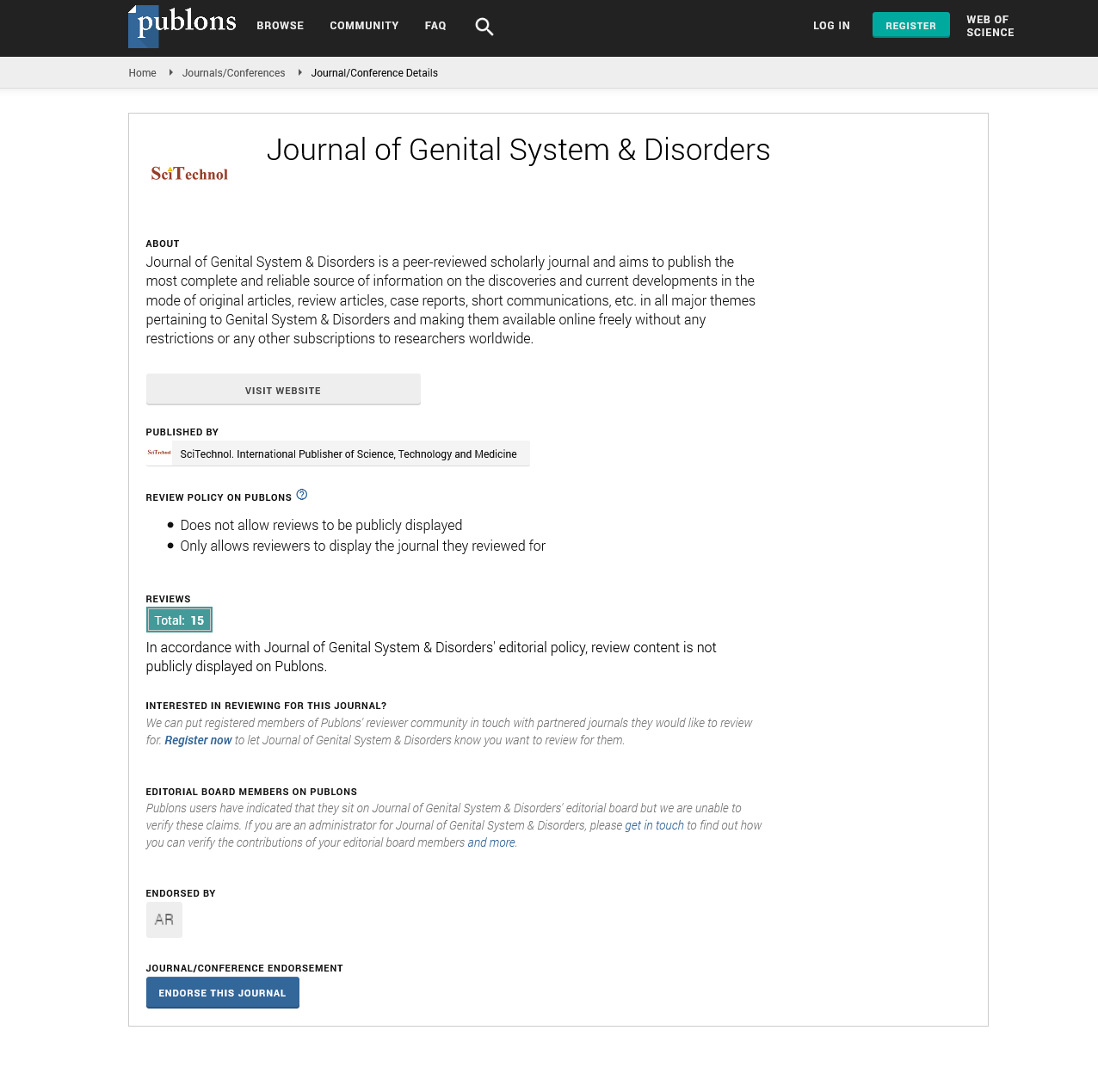Review Article, J Genit Syst Disor Vol: 5 Issue: 3
Potential Markers of Endometriosis: Latest Update
| Gupta S1* and Sinha A2 | |
| 1American Center of Reproductive Medicine, Cleveland Clinic, Cleveland, OH, USA | |
| 2Case Western Reserve University, Cleveland, OH, USA | |
| Corresponding author : Sajal Gupta MD, MS, TS (ABB) Assistant Professor,Lerner College of Medicine, American Center of Reproductive Medicine, Cleveland Clinic, Cleveland, OH, USA Tel: (216) 444-8182, (216)-312-0826 Fax: (216) 445-6049 E-mail: guptas2@cff.org, Annika.Sinha@case.edu |
|
| Received: March 08, 2016 Accepted: May 09, 2016 Published: May 16, 2016 | |
| Citation: Gupta S, Sinha A (2016) Potential Markers of Endometriosis: Latest Update. J Genit Syst Disor 5:3. doi:10.4172/2325-9728.1000157 |
Abstract
Endometriosis is a complicated chronic disease that is characterized by the presence of ectopic lesions commonly located in the ovaries, peritoneum, and rectovaginal septum. It can cause irregular bleeding, pain, and infertility in the millions of affected women globally. While it is associated with abnormal mechanisms of retrograde menstruation, inflammation, and oxidative stress, but its etio-pathogenesis is not clearly characterized. Previous and recent literature supports the presence of altered levels of immunological signaling molecules growth factors, oxidants, and antioxidants in patients with endometriosis. This article reviews such literature regarding these biomarkers in four biological windows: serum, peritoneal fluid, follicular fluid, and relevant endometrial tissue samples. The investigation of changes in the proteome expression and oxidative stress markers in endometriosis has been shown to reflect the presence and severity of the condition, suggesting these molecules may possess the relevance and capability to function as early diagnostic markers. Current standard of laparoscopic diagnosis can delay detection by approximately nine years; therefore, establishing a non-invasive, inexpensive diagnostic methodology could simplify detection, reduce the use of invasive procedures, improve management, and address worldwide public health concerns. Characterization of multiple highly specific and sensitive biomarkers is necessary to create a reliable testing panel for early detection of endometriosis. The focus of the review is to summarize the relevant biomarkers as potential diagnostic tools for endometriosis and understand the roles of immunological and chemical modulators in this pathology. Our review also suggests that future research direction regarding diagnostic potential of biomarkers should further showcase reproducible results to establish the credibility of associated molecules.
 Spanish
Spanish  Chinese
Chinese  Russian
Russian  German
German  French
French  Japanese
Japanese  Portuguese
Portuguese  Hindi
Hindi 
